Learning from Lear
“We thought we had put the project to bed. We really said goodbye to it. Vowed never to work on it again.”
This is what Philip McKee says about his production of LEAR: A Retrospective, a years-long collaboration with Canadian stage legend Clare Coulter, which is opening tonight as part of Harbourfront Centre’s World Stage Redux.
Clearly, they broke that vow.
This year, the contemporary theatre and dance festival has programmed eight shows that all previously graced the Harbourfront Centre stages. The choice is a reflection on Harbourfront’s past, says Iris Nemani, the organization’s chief programming officer. A look back on where they’ve been and when they’ve been their best.
Each piece chosen—from Yaël Farber’s Mies Julie to Tim Crouch’s My Arm to McKee and Coulter’s LEAR: A Retrospective—was a vital part of the contemporary conversation the year it ran. But, according to Nemani, each still resonates and is relevant today.
To understand McKee and Coulter’s involvement this time around, it’s helpful to look back at the beginnings of their unusual collaboration. The pair met when McKee, now in his thirties, was studying directing at the National Theatre School of Canada. Coulter, now in her seventies, was one of his mentors. After he graduated, he and Coulter collaborated on an adaptation of La voix humaine.
“We created a piece that simultaneously was and wasn’t the source material,” McKee says. “We did nothing with the play itself, but nonetheless found that we created a version with different non-dramatic performance events.”
McKee wanted to work with Coulter again and had a vague idea that they should tackle King Lear.
“I was struggling to think of what roles there were for actors over sixty, in particular women over sixty,” he says. “A non-gender-specific approach to the text seemed like a good idea.”
McKee’s original intention was a radical deconstruction of the material. But there was a bit of a miscommunication right off the bat. He was interested in having Coulter play Lear and speak the text of Lear, but Coulter had imagined, like with La voix humaine, that it would be more abstract, that they would tell the story without speaking any of the text.
This miscommunication led to a small conflict in the workshop, to which they had invited a group of artists, most of them of McKee’s generation. “It felt a bit like young folks were on one team, older folk on the other,” he says.
Together, the group had to negotiate what they wanted to do with the text, and, given the way their process reflected the story of King Lear, they decided to pursue a meta narrative. Lear struggles with the idea of aging, with ceding control to the people who will eventually replace him, and with his powerlessness over how he will be remembered. His struggles resonated with the actors’ efforts to come back to an old play in an ever-changing world, and to find meaning in an art form that, by its nature, is fleeting.
After developing the production through Harbourfront’s HATCH performing arts residency in 2011, the production went on to play at World Stage in 2013, and then at Magnetic North in 2014. Each iteration was different.
In 2014, they replaced the actor who had played Cordelia with McKee, and his and Coulter’s working relationship became a heightened expression of the text’s core conflict—exploring duty, ego, love, and sorrow through how an older actor relates to a young director and co-star. In their current production, there’s an even bigger shift: McKee is no longer the director, and he and Coulter are the only performers.
I don’t know whether we’re fantastic collaborators.
“We’re taking remnants of the old show and performing them as remnants,” says Coulter, “and then what happens in between those remnants should inform where the show is at now, and where we’re at now in our relationship.”
“What Clare and I have done is recognize that there has been a kind of pattern of conflict, disagreement, and misunderstanding [between the two of us],” McKee says.
The pair has worked hard to identify problems and respond to them, which has been especially difficult across their generational gap. But the attempt to find mutual understanding “has felt like the most fertile territory for trying to tell the story of the play, by telling the story of the process,” says McKee.
When asked how LEAR: A Retrospective is relevant in 2017, Coulter responds that they’re not trying to make deliberate associations with what’s happening in the world today. “But it is a story of catastrophic decline,” she says. “You could say we’re talking about the planet, we’re talking about where politics are at and how things have become difficult.”
McKee adds, “I think people could make an argument about [the generational gap] being particularly relevant now.”
Given that McKee and Coulter keep coming back to Lear, it’s easy to imagine that they’re a strong team. But Coulter isn’t so sure.
“It has been difficult. I don’t know whether we’re fantastic collaborators,” she says. “Don’t forget, I’m somebody who is on my way out as an artist, and Phil is still at the beginning of his life. There’s the whole question of the future, of two people on trajectories not likely to come together in the future.”
McKee says that part of what they’re exploring in the show is why they keep doing it, and what draws them to each other.
“We’ve been successful at creating a process for ourselves where we’re able to find a shared space and, whenever we do disagree and negotiate, we’re able to do that in a way where things don’t just die,” he says.
Luckily for their audiences, things don’t only not die, compelling work is created. McKee believes their long collaboration has allowed for that. “I feel like this is the best our work has ever been.”
“Redux” means “to bring back,” which is exactly what World Stage 2017 is doing. This year’s festival comes at a natural moment of reflection and transformation for Harbourfront Centre. The organization’s look-back at their history of bold programming has led to a celebration of exceptional artistry that shows us, to this day, who we are.
For more information about this year’s festival, including LEAR: A Retrospective, click here
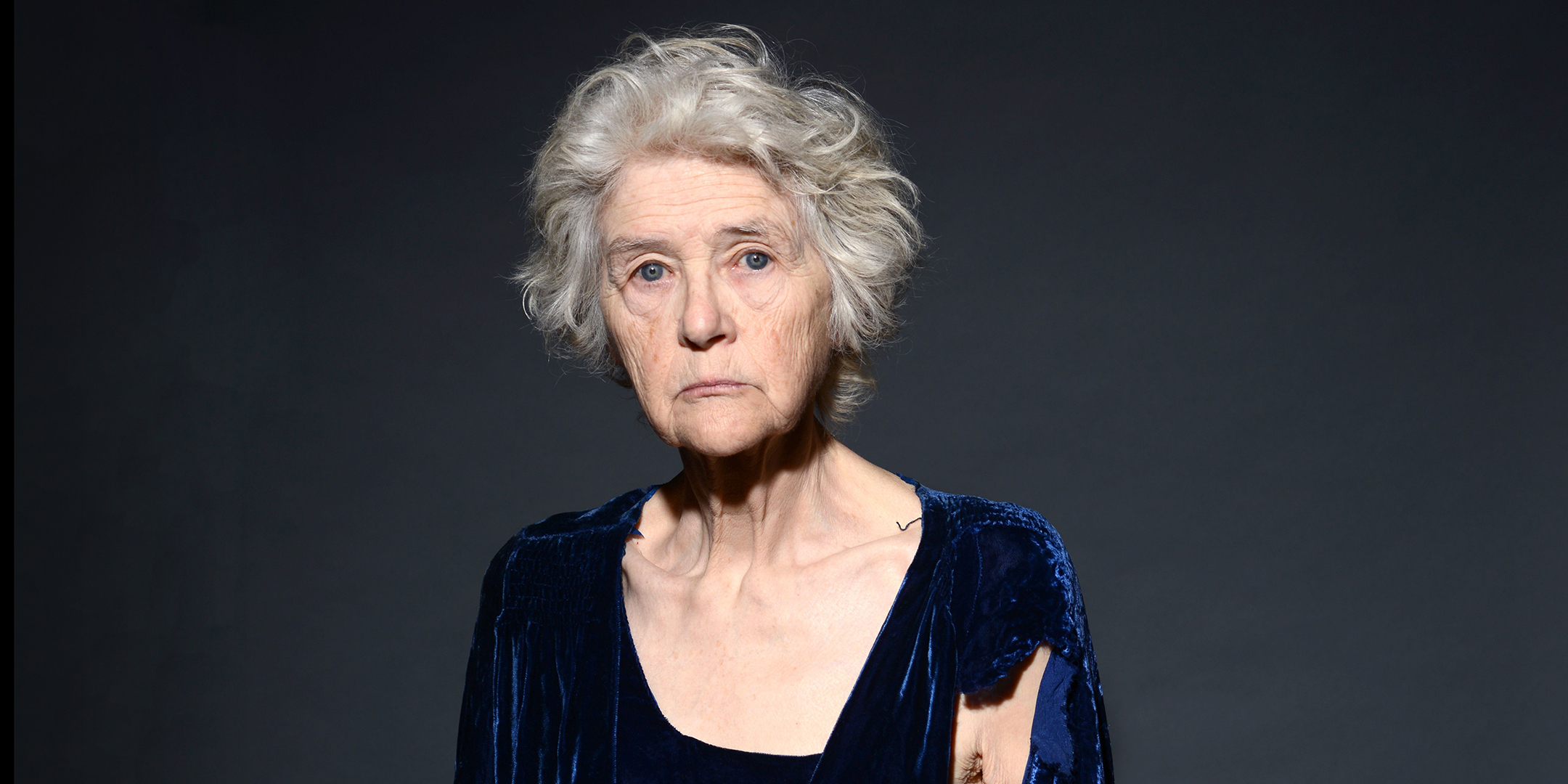

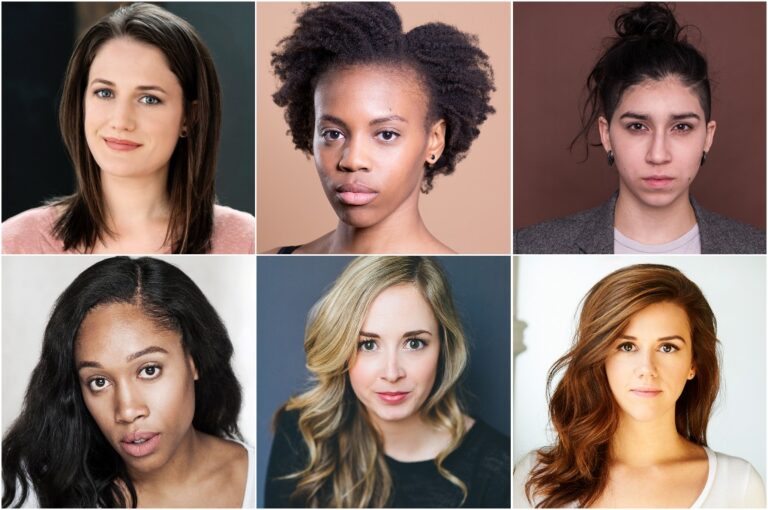
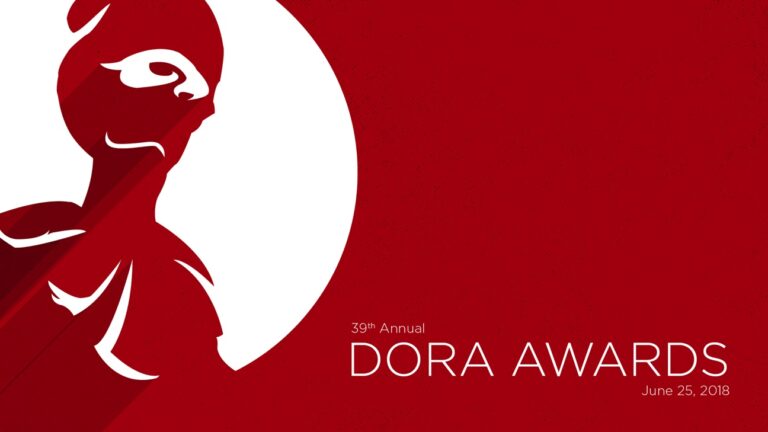
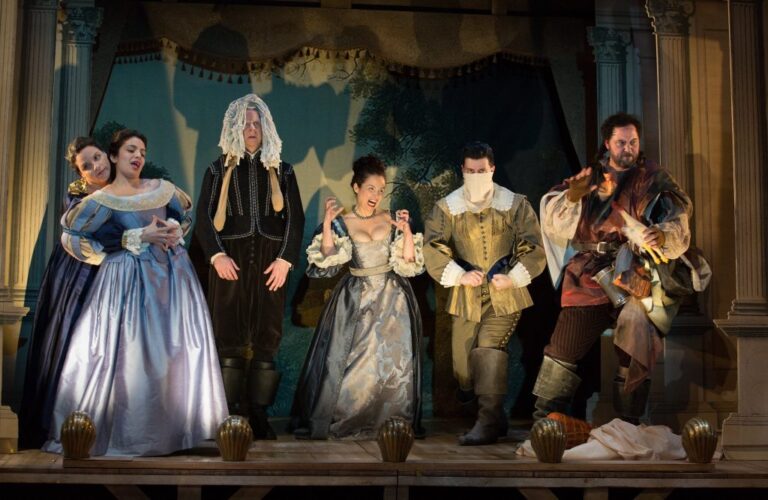

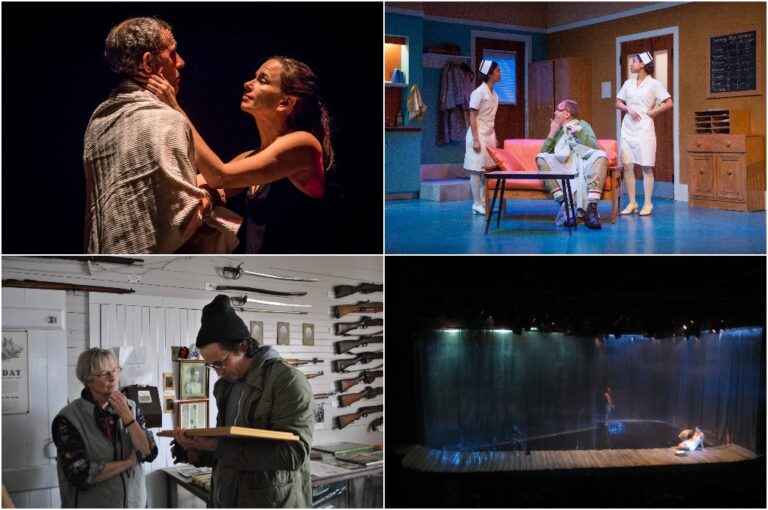
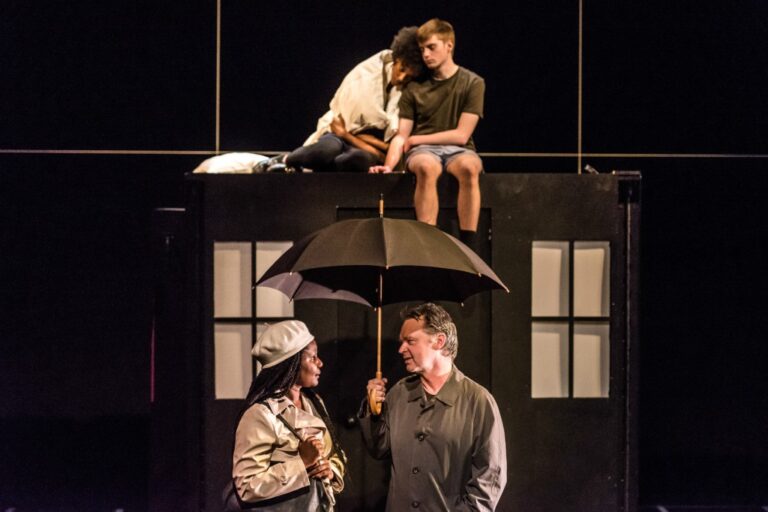
Comments